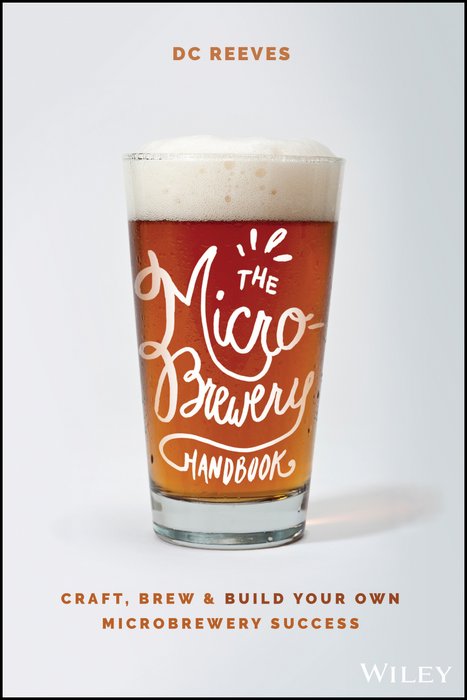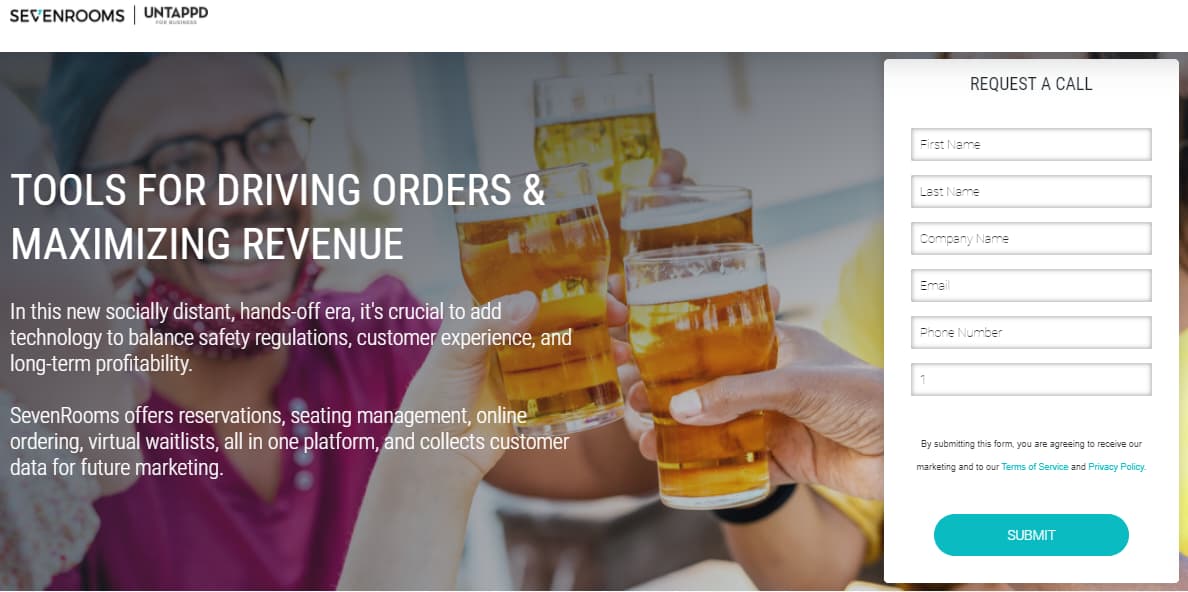
The Microbrewery Handbook, a first-of-its-kind guide to what it takes to make or break a successful microbrewery, hit book store and digital ebook shelves just before Thanksgiving, and CBB was provided a sneak peek to share with all of you.
In the Handbook, author and founder of Perfect Plain Brewing Co. in Pensacola, Fla., DC Reeves explains that great tasting beer is just the beginning and details the many elements beyond the beer that are necessary in creating, growing and sustaining a successful microbrewery in today’s saturated market.
“Gone are the days when opening a microbrewery and calling it local equaled unrivaled success,” Reeves said. “What will define success in this new era of craft beer is how well a brewery does the other things besides beer: hiring, customer experience, employee engagement, operations, cash flow. Our industry has graduated past the simple importance of merely making great beer and into a new fiercely competitive world.”
The book offers practical guidance for brewers covering everything from the basics of brewing and the financial and business side of opening a brewery to creating a company culture, getting the word out and helping a brewery thrive in local communities. The book also includes interviews and insight with industry experts as well as owners of some of the nation’s elite craft breweries including Sam Calagione of Dogfish Head, Jeffrey Stuffings of Jester King and Doug Resier of Burial Brewing.
Below is an excerpt from Chapter 22, published with permission from the publisher Wiley. Copyright © 2020 by John Wiley & Sons Inc. All rights reserved. The book is available wherever books and eBooks are sold.
Chapter 22
Keys to Improving Day-to-Day Taproom Operations

While I can speak to our experience, understand that these are guiding ideas and tools and can still be effective when modified. If you have a much smaller or much larger staff, it is understandable that the programming of meetings and the like may be less frequent. Still, try to instill some of these principles in your new or fledgling brewery operation.
Weekly “family” meetings. Set a single, one-hour, non-negotiable, regular meeting each week with your leaders. I’m amazed how few breweries actually set time aside time to meet. When we do collaboration brews on Mondays and they see what our meeting is like, they usually say “We should start doing this!” In my view this is an absolute must. If you have a brewery and are not doing this, start doing this immediately.
Note that just talking with everyone at the brewery intermittently doesn’t count as a “meeting.” We’re talking about dedicated time with a clear outcome. With no standard meeting time and each department in a silo, you will miss so many things: dropped balls on coordination and — just as painful — missed opportunities to collaborate on ideas. If we are holding a big event in town and we want to have a beer to go with it, if our marketing/events person isn’t talking with the brew side staff, we’ll miss our chance to maximize the greatness of the event.
At Perfect Plain we meet every Monday at noon and include all people who supervise any staff. We go around to each bucket — director of brewing operations, head brewer, taproom operations manager, marketing and events manager and owner. We all give updates, then table longer discussion topics until the end. We settle on our social media schedule for the week during these meetings.
We typically save disciplinary issues for the direct staff involved but announce any staff discipline or changes when ready at this meeting first before notifying all staff.
We also have an open-door policy for other staff who would like to sit in on a meeting at any time. as long as they give us notice in advance.
Monthly Company-Wide Meetings
It’s easy to get in the habit of not doing this, but one of the most common reasons someone leaves a company is that they feel disengaged or that they aren’t being communicated with about the direction of the company.
We practice transparency as much as possible by letting all staff know about the goings on. I give updates on anything organizational, even if it has nothing to do with them. Does buying a new foeder impact the bartender’s daily routine? No, but if the goal is for employees to be empowered and feel like owners, they should know what is going on. We ask all departments to give updates to all staff during these meetings. In addition, this is when we do additional training, and in many cases we follow it up with lunch or something fun they can look forward to. Employees might complain about an early morning, but I consider this part of everyone’s obligation to our company as an employee. It’s not asking too much for all of the organization to follow our routine.
Quarterly Outings for Staff that Have Nothing to Do with Work
Plan something that’s fun and has no work component about it. Following the holiday season, we had a meeting in the morning at the brewery, then I arranged for every employee and their significant other to have a hotel room at Pensacola Beach for the night. We planned beach Olympic games for staff, we bought everyone dinner and went out together. It’s an expense, of course, but I look at it purely as an investment in your people. Don’t forget just how expensive it is to lose good people, both in time and in finances.
Create a Daily Report for the Closing Leader to Fill Out

Dovetailed into the importance of financial transparency with staff, a daily report that goes to all staff is extremely valuable. This is where the closing manager or bartender sends a document that shows the day’s sales and other updates that are important to staff. Not only does it keep your employees in tune with your company’s performance, but it also helps leadership react to any issues. We’ve been able to hop on concerns like broken trash cans, small equipment replacements and other potential problem areas much faster because our bartenders are talking to us through this report each and every night.
Here is an example of what we call our “Rachel Report,” named after Rachel Jackson, the wife of U.S. President Andrew Jackson. Rachel spent time in Pensacola and dubbed it the “Perfect Plain,” in a letter from July 23, 1821, inspiring our name.
Rachel Report Template
GENERAL INFORMATION
- Report Date:
- Reporting Manager:
- Holiday/Special Events:
- Weather:
- Entertainment:
SALES AND COUNTS
- Total Sales:
- Total Transactions:
- Taproom Sales:
- Gift Certificate Sales:
- Merchandise Sales:
- All Other Sales:
STAFFING
- Number of Bartenders:
- Trainee(s) / Name / Position /
- Training Day:
- Was the level of staffing appropriate for the day?:
- General Staffing Comments:
REPORTING INFORMATION
- General Notes:
- Any PPX in today? If so, who?:
- Event Notes:
- Food Truck/Food Service:
- Guest Comments:
- Who did a good job today? Who do we need to recognize? What did they do?:
- Were there any incidents that happened today? Product Quality Feedback:
- Lost and Found:
- Items 86’d:
- Did any kegs kick? If so, which ones?:
Repairs and Maintenance
- To Do–Misc Notes for BB or Brewers: Is the office / keg room tidy?
- Daily/Weekly Sidework Completed?
For much, much more, be sure to grab a copy of the Microbrewery Handbook wherever you normally grab such things.





Jason Kneupper says
Daniel Hays
Daniel Hays says
Jason Kneupper On it!
Dane Fitzgerald says
I’d love to hear real thoughts on this.